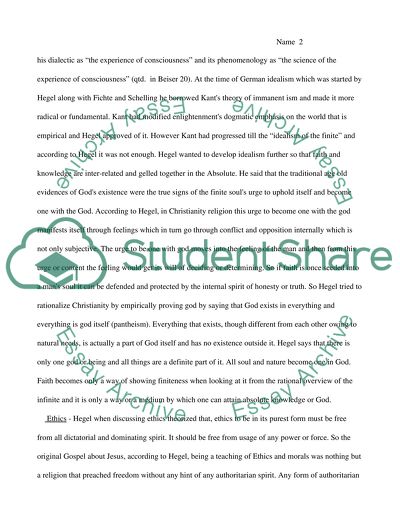Cite this document
(“Hegel's impact on Christianity 19th Century Europe and Kierkegaard's Research Paper”, n.d.)
Hegel's impact on Christianity 19th Century Europe and Kierkegaard's Research Paper. Retrieved from https://studentshare.org/miscellaneous/1552990-hegels-impact-on-christianity-19th-century-europe-and-kierkegaards-opposition-to-his-teachings-on-christianity
Hegel's impact on Christianity 19th Century Europe and Kierkegaard's Research Paper. Retrieved from https://studentshare.org/miscellaneous/1552990-hegels-impact-on-christianity-19th-century-europe-and-kierkegaards-opposition-to-his-teachings-on-christianity
(Hegel's Impact on Christianity 19th Century Europe and Kierkegaard'S Research Paper)
Hegel's Impact on Christianity 19th Century Europe and Kierkegaard'S Research Paper. https://studentshare.org/miscellaneous/1552990-hegels-impact-on-christianity-19th-century-europe-and-kierkegaards-opposition-to-his-teachings-on-christianity.
Hegel's Impact on Christianity 19th Century Europe and Kierkegaard'S Research Paper. https://studentshare.org/miscellaneous/1552990-hegels-impact-on-christianity-19th-century-europe-and-kierkegaards-opposition-to-his-teachings-on-christianity.
“Hegel's Impact on Christianity 19th Century Europe and Kierkegaard'S Research Paper”, n.d. https://studentshare.org/miscellaneous/1552990-hegels-impact-on-christianity-19th-century-europe-and-kierkegaards-opposition-to-his-teachings-on-christianity.


